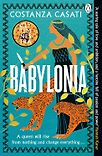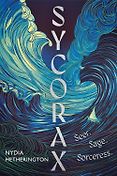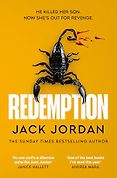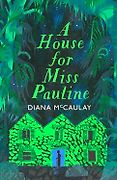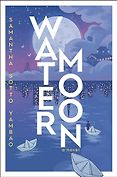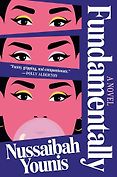Could you start by giving an introduction to the prize and what you, as judges, were looking for in the shortlisted novels?
The Wilbur Smith Adventure Writing Prize is there to showcase the world’s best adventure writing authors and books. It’s to highlight the genre and to bring it—ideally—to people who wouldn’t normally open those kinds of books.
It’s about the best of adventure writing, which could be anything. Adventure means something different for everybody. Whether it’s stepping out and going for a two-minute walk, flying at Mach 2, or walking the Nile, it’s something that takes you on a journey, and you grow from it.
So that’s what I—and we as a panel—were looking for. We wanted a book we were gripped by, that took us on a journey, and at the end of it, we felt like we had grown, that we’d learned something, and thoroughly enjoyed being on the trip.
I loved Wilbur Smith books growing up. Do you think the prize is very connected to his approach to writing?
Every writer is different. Every book is different. But the fundamental line that flows through all the books is adventure and the ability to open up the world. It’s about not only seeing through someone else’s eyes, but feeling that you’re that person. And, during this process (and having read last year’s winner as well), I felt like a female pirate. I felt like a humanitarian worker. I felt like a sorceress or a female empress. All these different things I’ve felt because the books have brought me on that journey, and I’ve walked away from it feeling like I’ve grown and learned a great deal.
That’s a great introduction. Let’s go through each of the books, starting with the winner. This is Babylonia by Costanza Casati. What can you tell me about this book?
Babylonia is set in ancient Assyria, in the ninth century BCE. It’s an amazing adventure story about an orphan, Semiramis, who, in this very turbulent, male-driven period, goes from nothing all the way through to being the empress of the whole area. There’s a wonderful blurb where it says about the three main protagonists, “And before long, all three will be forced to learn the lesson of the gods. In Babylonia”—which is the area it’s set in—”you must bend the world to your will. What doesn’t bend, you break.”
It’s all about Semiramis, who goes into this world and makes it work for her and for her people. It’s such a powerful story. It makes me wish I were part of that era and in that ancient land, because it just sounds so exciting—brutal, but really exciting. With so many twists and turns…it’s just an amazing adventure.
Also, I got the sense that it’s based on a real person. Is that right?
Yes. Maybe it’s because I’m a test pilot and I’m very factually driven, but what I loved about this book is that it was hugely researched. It does follow a historical story, or at least elements of it, because factually based information from historical times back then is so scarce.
Costanza managed to find all these little pieces and put them together into a story that ultimately ran through all the factually based things that she discovered. For me, that makes it real. It means that I’ve grown not only in an imaginary sense, but in a real sense. The fiction scatters off in lots of different directions, but the fundamental basis that it’s built upon is true.
Let’s turn to the next book on the shortlist, which is Sycorax by Nydia Hetherington. This book is more in the realm of myth, I guess, imagining a character from Shakespeare’s The Tempest.
Yes, it’s about a sorceress, Sycorax, who’s born from the sun and the moon and shaped by fire. She didn’t understand her powers, but she knew she came from a special background. She was left by her parents and had to find her own way in the world. She was alone and an outcast.
These powers that she didn’t understand grew, but becoming more powerful made her more of an outcast, especially in a time when being knowledgeable and powerful and different as a woman wasn’t embraced. She found herself completely excluded from local society, but with a power that could either save all of the people around her or destroy them, and it’s her choice whether she uses that power or not.
It’s a cruel story. It’s a sad story, but it’s a really empowering story as well. It takes you through a whole raft of emotions.
Again, it’s sourced from the very minimal information that’s out there on Sycorax. Shakespeare mentions her as a sorceress, but there aren’t many other details. Nydia did a fantastic job of creating and evolving this character from a starting place all the way through. It is a wonderful story of sorcery – ‘Seer. Sage. Sorceress.’ It’s just fantastic.
Let’s move on to a thriller next, set in the Nevada desert. Can you tell me about Redemption by Jack Jordan?
Redemption is a true roller coaster. It’s told from several different perspectives: each chapter is a different character. There are three individuals, one who has recently been released from jail. It’s such a thought-provoking thriller because every chapter, every character and episode that you go through, your whole opinion changes, and you buy into their perspective.
It’s a hard book to talk about because I don’t want to reveal the plot…but with each one you think, ‘I would absolutely do what this person’s doing, because I would never accept what that other person has done.’ And then you go on to their perspective, and two or three pages in, you’re like, ‘Oh! Now I understand they didn’t mean to do this, or they did this for this reason, and now I don’t understand why the other person would do that.’ And then it takes you to somebody else. There are new twists and turns, and at every dividing junction, you’re sent in the opposite direction to the route you thought you were on. Eventually, you come all the way back to the start with a completely different perspective.
So it’s really, really enjoyable. It pulls on your heartstrings. And when people talk about a page-turner…you will finish this book in a heartbeat, because you want to know what’s going to happen next.
I’m enjoying the wide variety of genres on the shortlist so far – we’ve had some historical fiction, some myth, and now a thriller.
For me, that was the biggest surprise. I thought I knew what an adventure book was, and when I was presented with these six originally I thought, ‘I don’t understand how they fit.’ But then, when you actually get into the journey, you realise that your perception of what adventure was was too narrow. The feeling you’ve had has been the same throughout. So, yes, it’s a thriller, but it truly takes you on an adventure through the Nevada desert, around every emotion, and back to the start again.
Next, we’re going to Jamaica and A House for Miss Pauline by Diana McCaulay. Tell me more about this book.
So A House for Miss Pauline is about a character, Pauline Sinclair, who is close to her 100th birthday and has lived in Jamaica her whole life. The walls of her house begin to shake and speak to her. Again, it’s a story where you wonder, ‘Is this an adventure?’ And then it grips you. It takes you not too far in terms of physical distance—around her plantation, to various little towns on Jamaica—but emotionally it takes you thousands of miles to places that you would never have dreamed of.
Miss Pauline is phenomenal. She’s basically been through almost everything you can in Jamaica, as a native Jamaican. She’s been a ganja farmer. She has studied literature. She has been through the struggles of religion in a male-dominated world and pushed against all the social norms.
This story is about her wanting to find out the truth about where she’s from, and to explain the truth about what’s happened to her and what she’s done in the past. Initially, her thinking is that she needs to protect her land and home, but in the end, it comes all the way back around again. It’s a phenomenally emotional and enlightening story.
An important aspect of the book is that it uncovers the slavery trade and some of Jamaica’s origins. As Miss Pauline knows she’s close to the end of her life, she seeks to explain what may have happened to a certain American, a white man, who came to take back the land that she’d built a house on and lived on for her whole life.
So she reaches out to his relatives, some of whom live on the island, some don’t. They all come together, and it’s a journey of discovery. They find out that they are all interconnected in a family relationship, and that this land is hers in the first place because of this longevity and these interconnections that go all the way back to the slavery trade. So it’s an amazing, really powerful book.
Parts of it are written in patois, which for me was initially quite challenging—to understand when Miss Pauline is talking. But I listened to the audiobook and got the rhythm of it, and then the book just flowed. It’s a beautiful, beautiful book.
Okay, we’re going to go to Tokyo now, with what I’ve seen described as a work of romantic fantasy. Tell me more about Water Moon by Samantha Sotto Yambao.
It’s all about a back street in Tokyo, where there’s a pawn shop. Most people won’t see it; they’ll see a ramen or noodle shop. But one or two people who are selected—and don’t even know they’re looking for it—will see this pawn shop. It’s where you go and pawn your life choices and your deepest regrets.
Unlike normal pawnshops, you can’t buy them back. You think pawning your regrets is going to change your life for the better, but the book is fundamentally a journey about how those regrets are what build you. If you did sell them, where would you be now? So although it’s fantasy, it makes you think.
And it most definitely is fantasy. It takes you to this magical world that my brain certainly wouldn’t be able to think up. You’re in a night market up in the clouds, making worlds out of papier-mâché. You’re jumping through puddles; the water is a portal into different worlds. It’s just magical.
The book absolutely takes you away from where you are, into a world that you know doesn’t exist. Like the other books, you experience the thrill without the peril. It’s comfortable and enjoyable to read, and another page-turner. You just want to know more and more about it, this place, and this topic that you wouldn’t normally think about.
In terms of adventure, there’s been a good geographic spread so far: Nevada, Jamaica, Tokyo…
The books cover the globe, and it’s not just geographic distance. It could be a distant time, too. It’s a real time or a real place that is distant. It all combines to be something that isn’t something you would normally expose yourself to. Therefore, for every one of us, no matter who we are, it’s an adventure to go on that voyage of discovery.
We’re at the last book on the shortlist now. This is Fundamentally by Nussaibah Younis, which is very funny. I’ve seen it described as ‘Bridget Jones in Iraq.’ I couldn’t put it down.
Fundamentally is about an academic who is from a Muslim background. She’s been pushed away by her family and her relationship, and she wants something new. She gets a U.N. job in Iraq, and because of all of her academic experience, she’s put on a program where she is rehabilitating ISIS women.
This is the book that was the most surprising for me. It’s definitely a story of our time, the ISIS brides. I’ve read the papers and been involved in various conflicts over in the Middle East. I thought I understood this topic, but this book is wonderful in the way it reveals new aspects to the subject—and does it in such a very intelligent, heartwarming, and funny way. When you hear the topic, you think it’s going to be a fairly serious book, but it’s very readable.
It’s the only book where I actually burst out laughing two or three times because it gets you. You’re in a deep and serious subject, but it’s able to deliver it in such an understandable, amusing, and readable way. As you say, it is a bit Bridget Jones, with a few storylines about relationships, romance, and love. It’s also about working in government agencies—the bureaucracy and some of the decisions that are made.
But the main line that goes through it is about the vulnerability of the ISIS brides and how they potentially have been duped into being part of that world and how they’re now stuck in aid camps and have no route of repatriation in any way, shape, or form. That was enlightening to me.
It opens with her stumbling around in the mountains in Kurdistan, on the border of Iraq and Turkey. That definitely counts as an adventure…
Yes, she’s with the Kurdish rebels. The book takes you through Iraq, into the aid camps, and on some Middle Eastern adventures. It’s brilliant.
It must have been very hard to choose the winner for this year’s prize.
It was, especially because they’re all so different. We had lengthy discussions as a judging panel. Everyone had their favourites. In the end, we focused on the fundamentals: what adventure is, how enjoyable and how much of a page-turner the book was to read, and how much you grew from it.
So yes, it was a really difficult decision. It was incredibly close. I’m sure if it had been a prize with a slightly different focus, any one of the books could have won. It’s a testament to the skill, the creativity, the artistic nature, and just the intelligence of the authors and the amazing books that they’ve written.
Lastly, tell me a bit about your own book. This is a memoir called Hazard Spectrum. Can you tell me a bit about how you came to write that, and what it’s about?
I wrote it at the end of my military career as a fighter pilot and a test pilot. It’s called Hazard Spectrum, because we all live with hazard, but we’re all at different points on the spectrum. The book starts with me surviving a jet accident that experts said was unsurvivable. I ejected, and my instructor ejected milliseconds later and was instantly killed. Then there were the mental demons and the support that I needed to be able to get back in the cockpit and continue what was my dream, rather than abandoning it and going elsewhere. It’s about progressing through all the jet types—continuing on the aircraft that nearly killed me and taking it to war in Afghanistan.
The war in Afghanistan was hard. It was bloody, it was messy. I had to make some decisions and do some things that training just can’t prepare you for, and live with them. The kinds of scenarios that you’re presented with, some are just impossible decisions, but you’ve got to make them because British and Coalition lives are depending on them. That involves putting your own life at risk as well, day in, day out.
It then talks about other stages of my career, as a commando and paratrooper. The book also reflects on when I was younger, and being told at school—when I said I wanted to be a pilot—that people from around here don’t go on to become pilots, and to go away and think of something more sensible.
It’s about the challenges of failing and getting up all the time to become a pilot, that whole journey, and the twists and turns that it takes, all the life-and-death decisions along the way. In the end, I was selected as one of the UK’s top test pilots. I tested the new stealth F-35 fighter jet, and did the first launch and landing on board the Queen Elizabeth carrier. It’s a $2 trillion project, sitting in your hands.
So it’s that whole journey from being told you can’t and being rejected several times, to being nearly killed once, and close to being killed a number of times during war, and then that pinnacle. That’s the story.
It’s a roller coaster, I’m told. I wrote it to be gripping all the way through, so that you can’t put it down. You question what you would do in those scenarios, and wonder how you would get through some of those situations that I found myself in.
In your mind, were you writing the book for other people like you who might dream of becoming a pilot, to encourage them?
The ultimate ambition was that if the book could encourage one person to do something that they thought they couldn’t do, that would be enough, and it would have achieved its goal. It was written for somebody who’s got no aviation background or military experience—for any member of my family or friends to understand what it’s about without any acronyms or footnotes. It’s supposed to be completely understandable and relatable for everybody, so you can join the adventure and experience what it’s like to sit in the ejection seat, to eject, to be involved in accidents, in conflict, to make those life and death decisions, and ultimately, to be responsible for the world’s largest defence project.
What do you do now that you’re not flying anymore?
I run a company that trains civil airline pilots around the world. It’s a publishing company called Padpilot, and we publish all the theoretical training material that a pilot needs. A bit like a driving license and you’ve got to learn the Highway Code, we write all the books and theoretical knowledge materials that you need to pass your pilot examinations. That’s what I do at the moment.
It’s about giving back. I also work as a STEM ambassador and give lots of talks at primary and secondary schools. I’m a trustee of the Spitfire association. The public chose ‘the 100 faces that have had the most impact over the last 100 years in Staffordshire’ for a mural in Stoke-on-Trent, and they put my face on there. It was such a privilege because I’m right there next to Reginald Mitchell, who designed the Spitfire. I’m really proud of that.
Stafford University recently made me a doctor of the university. So any kind of entrepreneur, business industry, or personal growth initiative they need help with, I try and share my expertise.
Did you study at university or did you go straight into pilot training?
I wanted to go straight in, but I was refused entry into the RAF at least two or three times. I was told to go and get more life experience, so I went to university. I studied aerospace engineering, mostly because of a picture on the prospectus at Manchester University. It was all words, and then there was a picture of an airplane, and it said aerospace engineering. So I chose that.
I did that for three years, did quite well, and then reapplied to the Air Force and the Navy. Both accepted me. So I had a choice, which was good. I joined the Navy because as I explain in my book, if you’re continually trying something and told, effectively, that you don’t fit and then come across somewhere else where you don’t try much at all, and they think you’re great and a natural fit, that’s the one to go for—rather than trying to fit a round peg into a square hole all the time. If there is a round hole, go for it. So I joined the Navy, and sure enough, that decision was the best decision I’ve made, because then it all just happened. It was hard work, but I wasn’t fighting against a culture that didn’t accept me.
Interview by Sophie Roell, Editor
October 3, 2025. Updated: December 7, 2025
Five Books aims to keep its book recommendations and interviews up to date. If you are the interviewee and would like to update your choice of books (or even just what you say about them) please email us at [email protected]
Five Books interviews are expensive to produce. If you've enjoyed this interview, please support us by donating a small amount.

